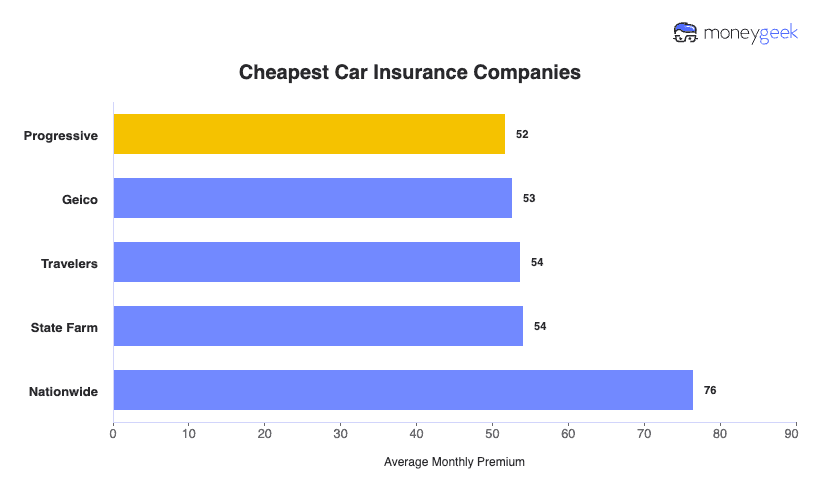The five cheapest car insurance companies nationwide on average, are:
- Progressive: $52/mo
- GEICO: $53/mo
- Travelers: $54/mo
- State Farm: $54/mo
- Nationwide: $76/mo
Progressive offers the cheapest car insurance rates, averaging $52 monthly or $624 annually - that's typically 38% below the national average. That's saving you $374 yearly. GEICO, Travelers, and State Farm's rates are within $2 per month of each other, but each is the least expensive in different scenarios.
Compare quotes from the low-cost insurers below to find the best car insurance company for you to maximize your savings.












